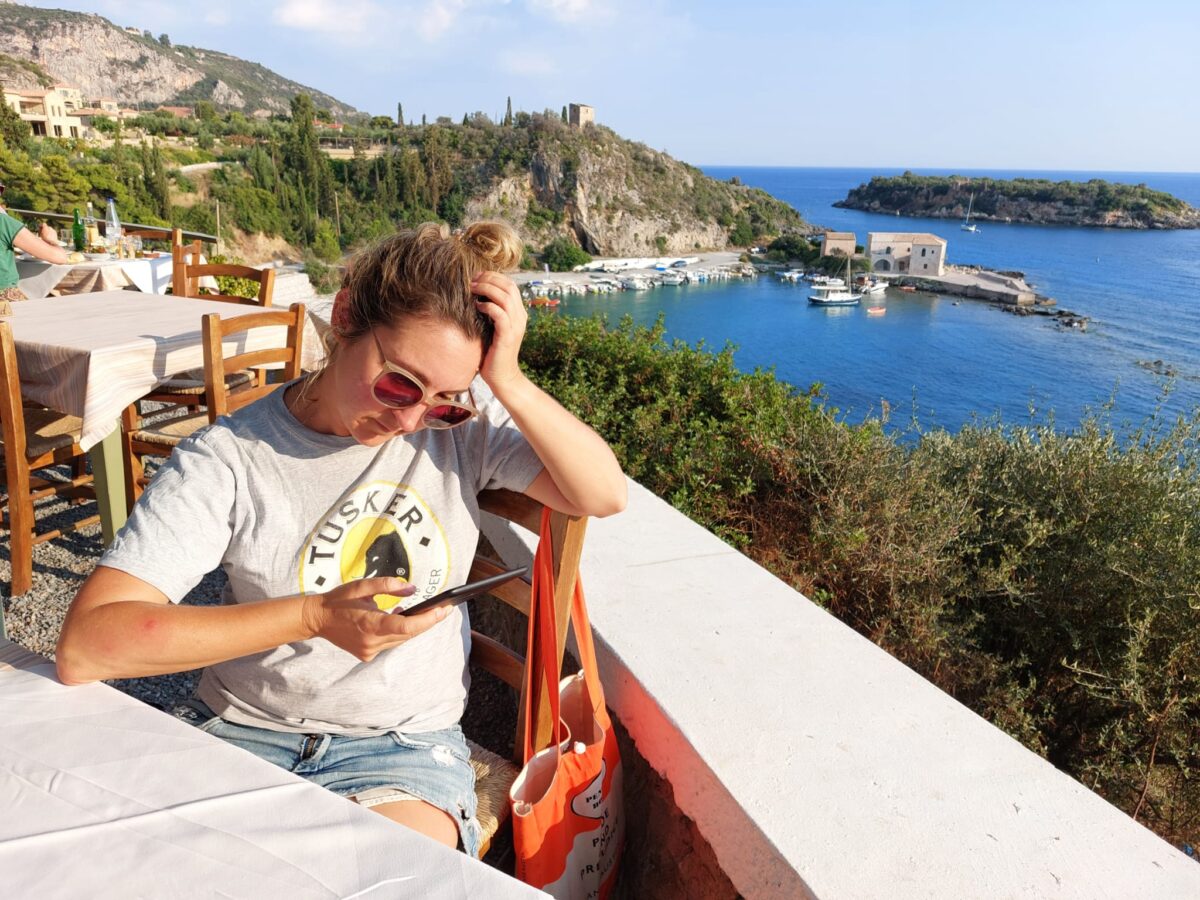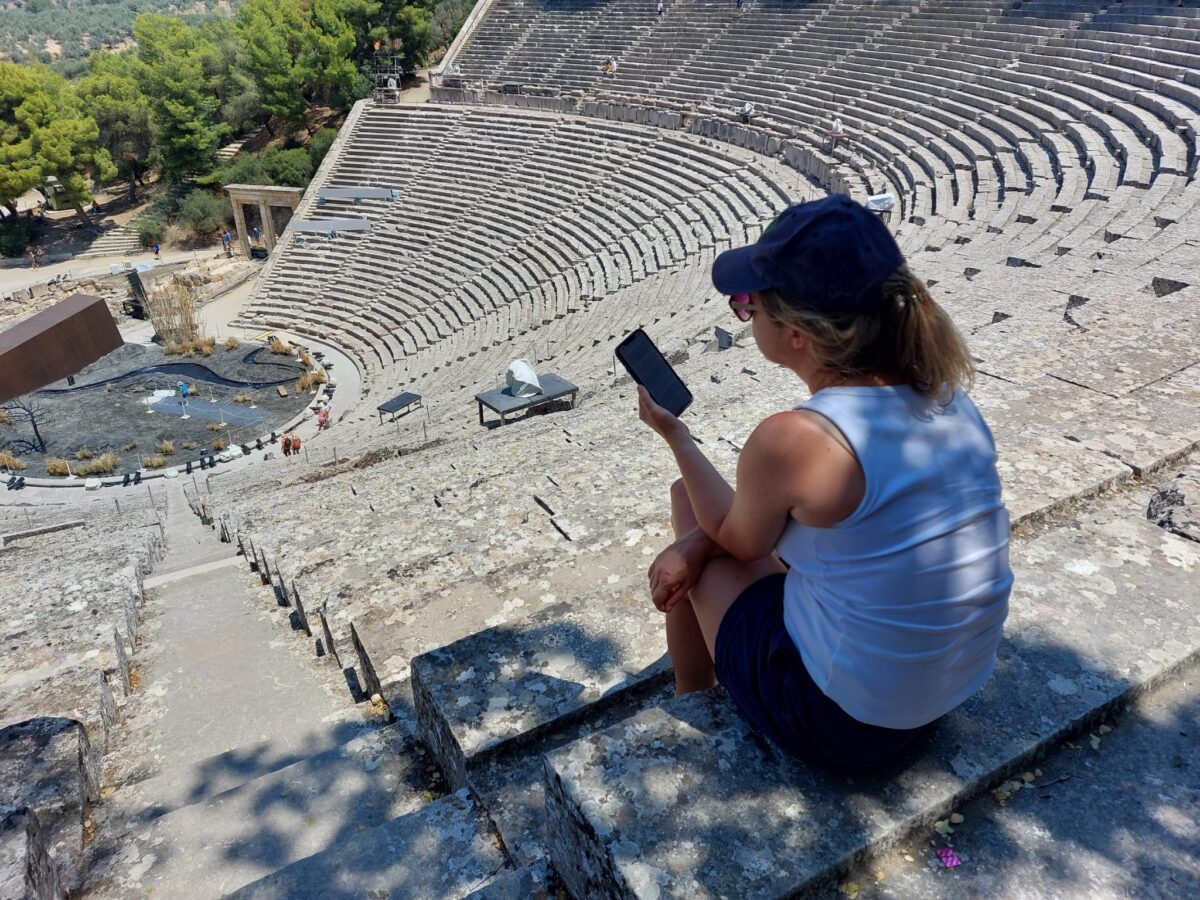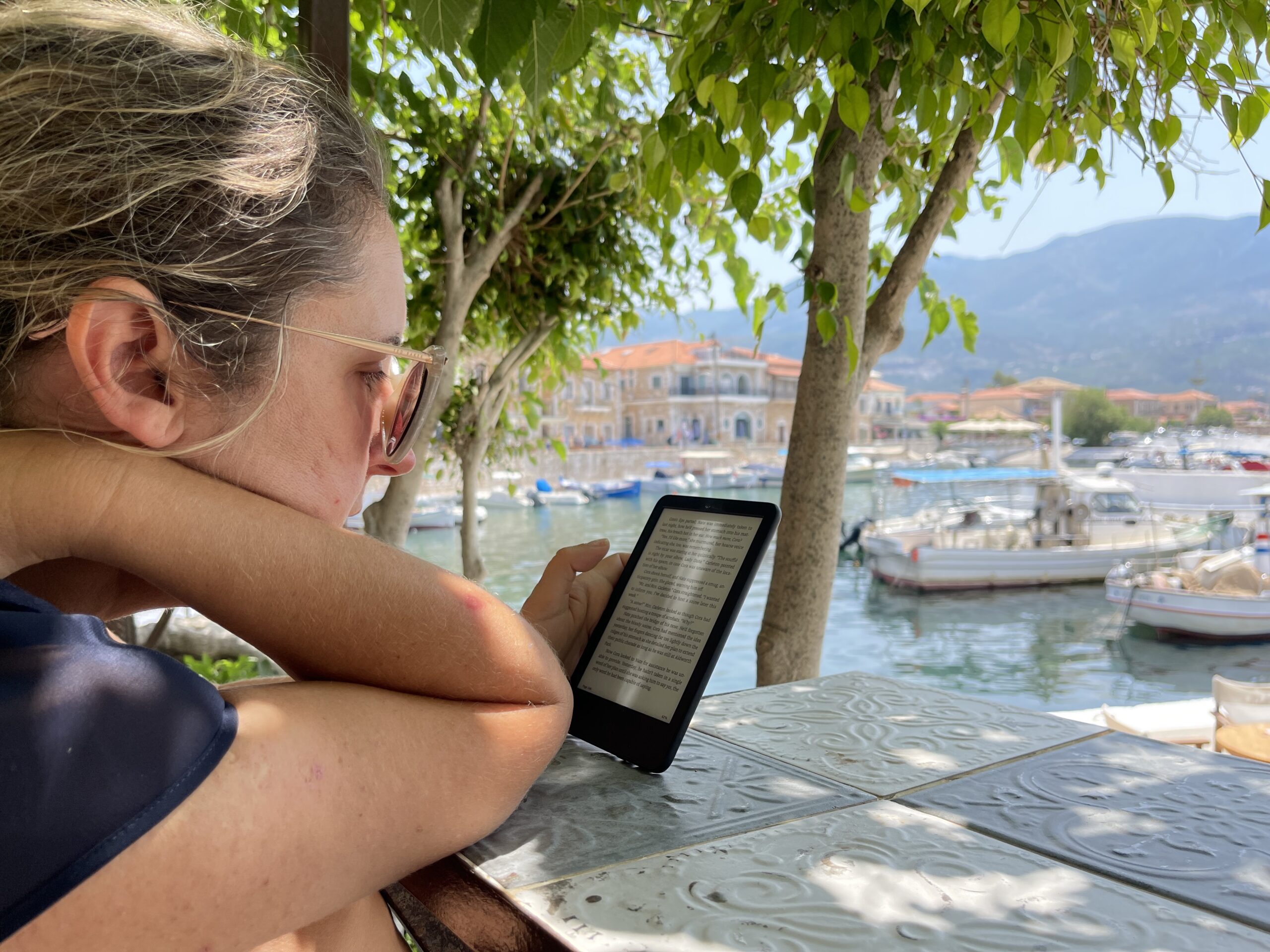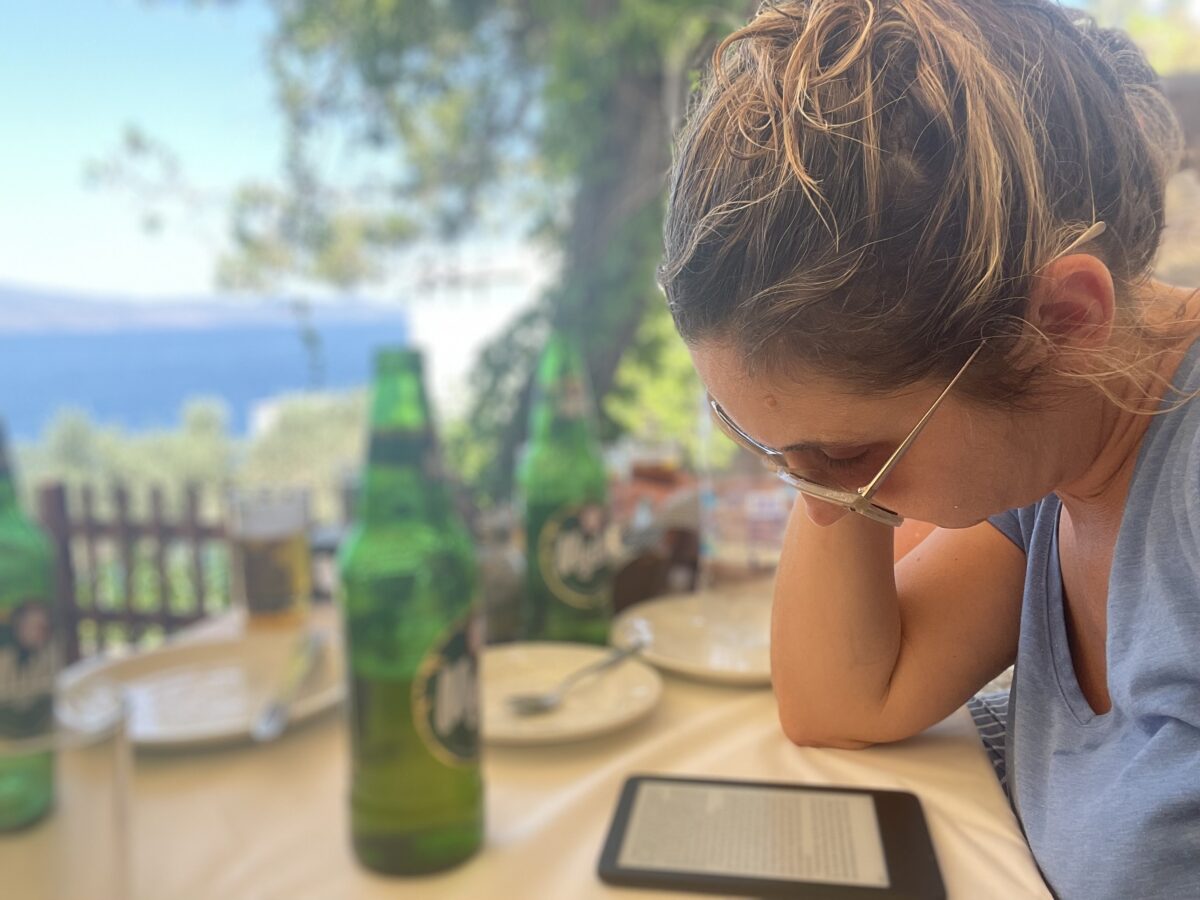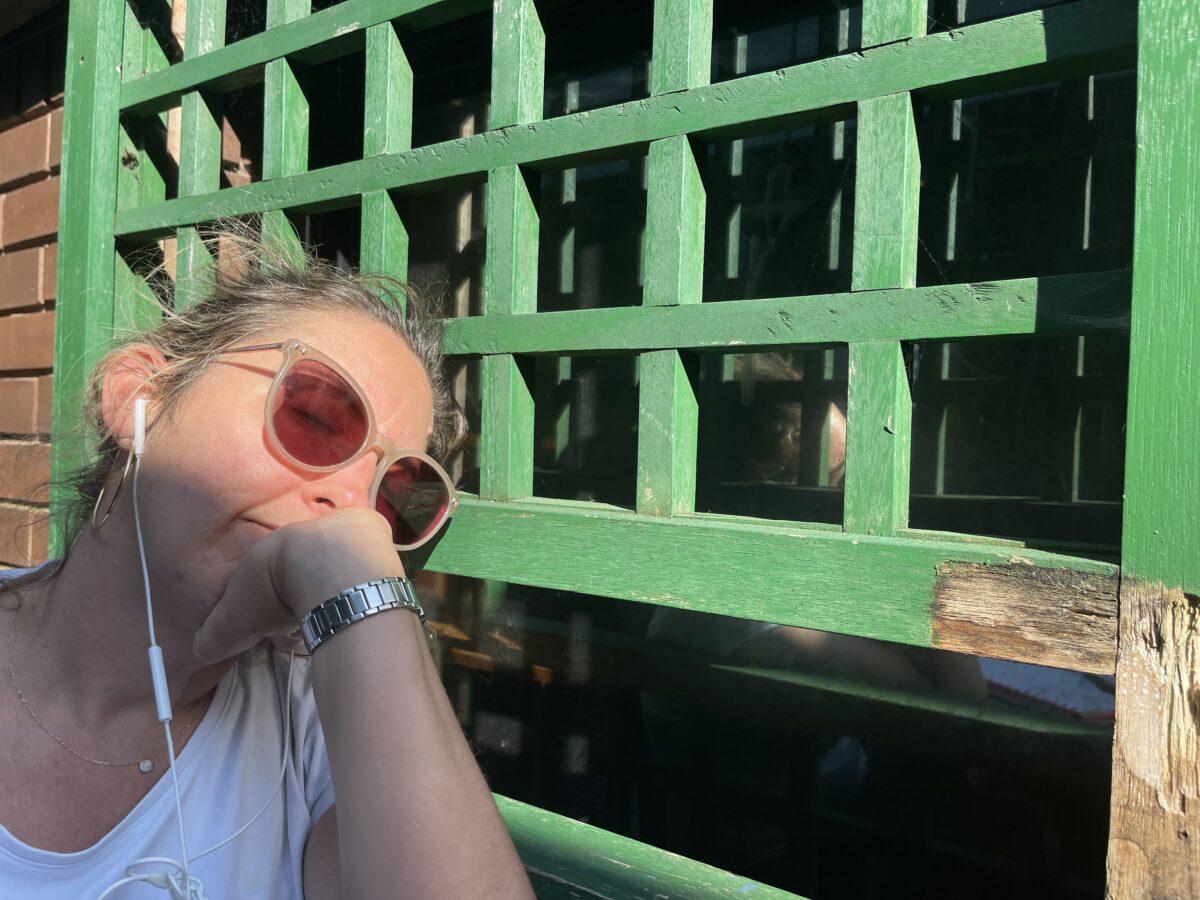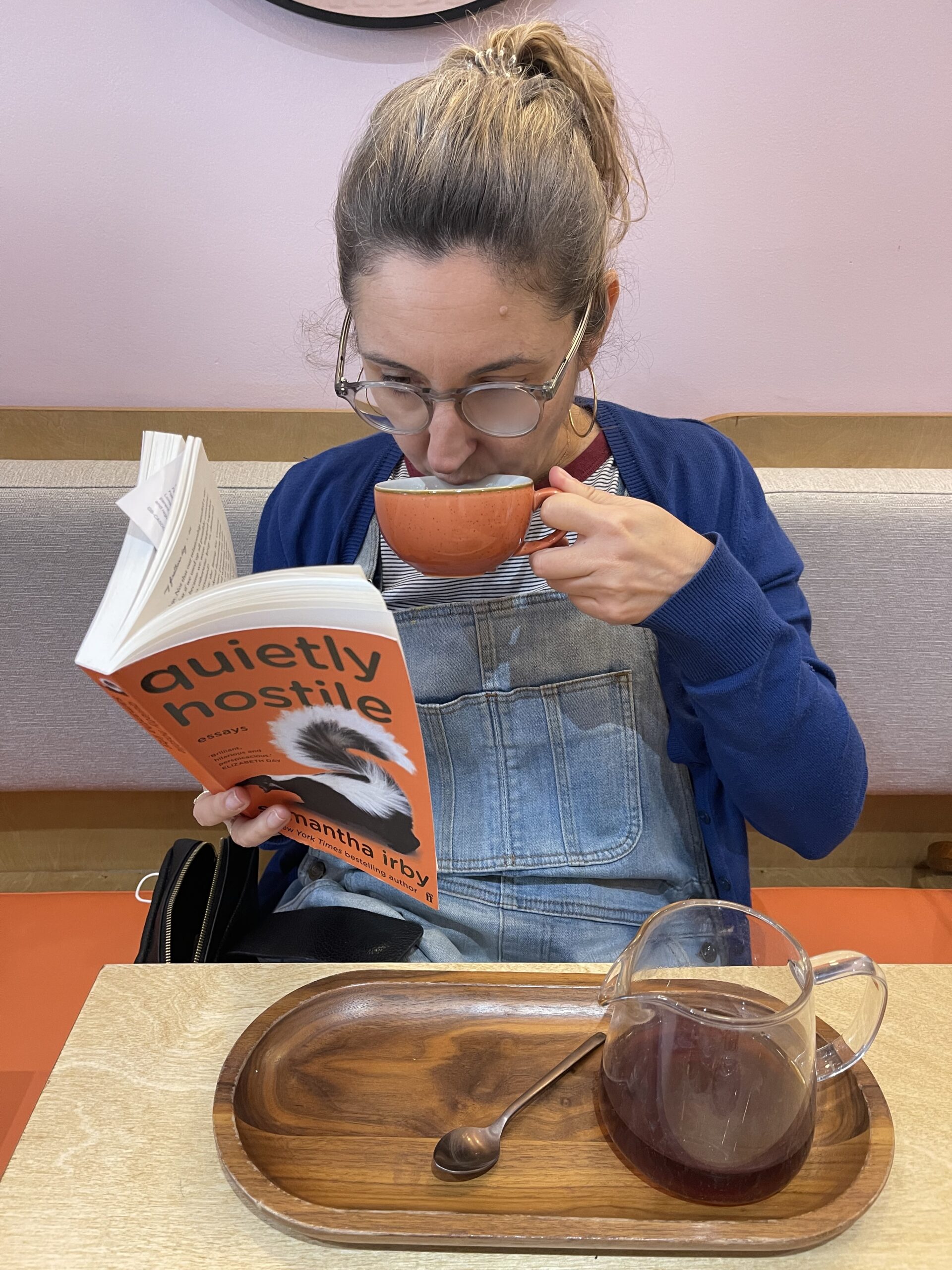A readable little book about a marriage between a young woman and a much older man that goes very wrong. I whipped through it, but somehow it didn’t touch me. I think maybe there was too much drama? I have always struggled to understand tortured relationships.
Tag: USA
VLADIMIR by Julia May Jonas
A wonderfully fun, salty novel, written from an unusual perspective: that of a woman in her late fifties. I don’t want to get all identity-based about everything, but wouldn’t it be interesting to know how many more books have 50-something male narrators than female ones? I bet it is like minimum 10x
Anyway in this book, enjoyably, the woman has a huge crush on a much younger man. He dresses well:
(I) had forgotten the specificity and light irony of urban style. My husband wore what he wore because he believed in it – he had lost the sense of costuming and presentation that well-dressed city dwellers naturally possessed. That perambulating sense of always being on display.
“Specificity and light irony” – I love it! She worries about her wrinkles, stops eating carbs, gets him drunk, and then goes direct to drugging him and tying him up. I had great hopes for where this was going. Then it took an abrupt left turn into much more ordinary territory. But I still had a lot of fun. Try this, when she is angry at her husband:
. . . lightning bolts of anger shot from my vagina to my extremities. I’ve always felt the origin of anger in my vagina and am surprised it is not mentioned more in literature
And this, when someone compliments her for all the art and poetry on her walls, and she replies:
But does one always want to be surrounded by so much culture? There’s something exhausting about being constantly bombarded by everyone’s best efforts
It was very pithy and interesting, even if I would have preferred the plot to go another way. I even liked this last reflection on what she had or hadn’t done:
Getting away with something, not getting away with something, moral retribution. I don’t matter, you don’t matter. To think we do is just marketing. It’s this cult of personality.
PINEAPPLE STREET by Jenny Jackson
This bestselling book was very more-ish. It was at the same time kind of forgettable. It was like a nice glass of water on a hot day. Or perhaps I just think that because I read it in a really hot country during a heatwave.
It is about a family of very wealthy people, and was an interesting window into what your problems are once the money one is solved. Boo-hoo, etc. One thing that did surprise me was the idea that employment in banking is heavily dependent on pedigree. In my experience, it seems to be a lot more meritocratic than that, and mostly dependent on hard slog. I was also struck, once again, by how much some people, especially thin people, seem to worry about their weight.
But that’s about all I have to say. I did read it in a single day though, so I must have enjoyed it
IN THE CUT by Suzanne Moore
Writing about sex is famously hard, but this book makes it look easy. It’s a thriller, in which a woman becomes involved with a homicide detective who she suspects of having himself committed the murder he is investigating, and of thinking of murdering her too. She gets lots of sex from him, and lots of sexual harassment from everybody else.
I can only wonder what New York was like in the 90s. For example: at one point she sits down to eat a hamburger alone in a bar, some guy starts bothering her, and she leaves. What is weird about this is that apparently it was clear to her (and to him) that eating alone was asking for trouble, and when that trouble comes, she does not at all expect anyone to help her. She barely objects. Imagine! I never think twice about eating alone.
The book is so very thriller-y that I was continually surprised to see it was written by a woman, and was interested by this, from the Guardian
Today, speaking to me from New York, (the author) says she realised she had been pigeon-holed as a “woman’s writer”. “And I found that quite limiting. So I decided that I would write a noir thriller, which is more commonly associated with male writers. It was very conscious on my part that I would make it tough and as erotic as possible.”
It’s kind of pot-boilerish, but that’s just what she is going for. And really, she’s a fine writer. Not just about sex, but try this description below, which I find very true of big talkers:
Like most people who are anecdotal, he told me nothing. He revealed nothing about himself. He talked a lot, but he only told me what he wanted me to know. Which wasn’t much.
DEAR GIRLS by Ali Wong
Here is a set of essays by a stand-up comic, structured as letters to her young daughters. It is fun and silly. Here she is on a failed one night stand:
That’s what happens when you spontaneously go home with a fellow struggling stand-up comic or, even worse, an improviser. (Please says say ‘fuck no’ to those ‘yes and’ mother fuckers).
I have for some reason read quite a few books by stand-ups, and I’m always struck by how incredibly rough it sounds: the travel, the horrible venues, the silent audiences. I admire it. I was especially touched by her early twenties, which sound a lot like mine:
Every day in NYC was about spending as little money as possible.
People don’t talk about that too much, preferring to focus on having genius or technique or whatever, but in my experience being able to live on nothing is way more important
THE STRANGER IN THE WOODS by Michael Finkel
Here is the true story of a man who camped in the woods, completely without human contact, for 27 years. I take it back: in the 1990s, apparently, a hiker said ‘hi’ to him.
This is a mind-boggling story. This guy from Maine, one year out of high school, leaves work one day and drives to Florida. Then he drives all the way back to Maine, past his childhood home, and keeps driving, deeper and deeper into the woods, until he runs of petrol. He puts the keys on the dash, and heads into the woods with nothing. And then he just doesn’t come out again.
I don’t want you to get the impression that he was there, wandering through glorious vistas and living off the land. He essentially found a small clearing, behind some rocks, that was minutes away from holiday homes, and just stayed there. All winter, he did not move. Even in summer, he only left to go steal necessities form the holiday homes. He just sat there, in this clearing, for 27 years. Once finally caught, police noticed how pale he was, and he accounted for this as follows: ‘I’m from the woods, not the fields.’ His main concern once police were in his camp seemed to be for his mushroom, that had grown from being coin-size to dinner-plate-size while he sat there. He apparently concluded he could not have a mammal pet, because he did not want to have to ever be forced to eat a pet.
This was a possibility, because every winter he got close to dying. He stole as much as he could in the summer, but it was hard to make it through the whole winter on that. He woke up every night at 2am to walk around so he didn’t freeze to death. And all the time there was a convenience store not 10 minutes away.
Probably the weirdest part of this whole story is that this guy does not seem to be crazy. In the woods he listened to the radio, and read books. After getting out of prison he went back to live with his family (who btw he did not tell that he was leaving). It just seems he did not much like human interaction, so he cut it out. He opted out.
He spent a lot of his time in the clearing apparently not fixing stuff, or reading, or whatever, but just sitting there. He cannot well describe it, but it is clear he had the experience of going out of himself. Because you don’t need a self when there is no one else to have a self for. He just listened to the wind and looked at the leaves. And then there was the pet mushroom.
I mean it does make you doubt your own choices. Somewhere the author quotes the line, attributed to Sophocles, of ‘Beware the barrenness of a busy life,’ and I’ve been thinking about that.
FOREVER YOUR ROGUE by Erin Langston
I read this romance because it was recommended in the New York Times. I was not quite prepared for how genre it was. It was full of smouldering eyes and things that throbbed. That said, I enjoyed it! The author pulled off the difficult feat of writing historical fiction in a way that felt contemporary and real without being ridiculously anachronistic. I also think genre writers don’t get nearly enough credit for how difficult it is to re-tell the most re-told stories in a way that is fresh and interesting. Also, I must confess I read it on a hot beach with a cold beer. How dead inside would I have to be to not enjoy that?
WE ARE ALL COMPLETELY BESIDES OURSELVES by Karen Joy Fowler
I so loved Fowler’s BOOTH that I decided to immediately turn to the much more famous WE ARE ALL COMPLETELY BESIDES OURSELVES. It is full of fun snippets. As for her example, her landlord: “Ezra Metzger, a name of considerable poetry. Obviously, his parents had had hopes.” And when two people come to enquire about him:
They said he’d applied for a job in the CIA, which struck me as a terrible idea no matter how you looked at it, and I still gave him the best recommendation I could make up on the spot. “I’ve never seen the guy,” I said, “unless he wants to be seen.”
LOL. And all this for a super minor character. Or try this, on her childhood toy:
. . . Dexter Poindxter, my terry-cloth penguin (threadbare, ravaged by love – as who amongst us is not) . . .
I love that parenthesis. That said, I did not like this novel nearly so much as BOOTH. It has a twist that I don’t want to give away, so it is hard to tell you too much about it, but while jokey it is actually a novel about grief. And that I just found too much like hard work. It was a long journey through loss, and I wasn’t really ready for that.
THE WAGER by David Grann
A tale of shipwreck and cannibalism to at beat all stories of shipwreck and cannibalism. In 1742, thirty men wash up in Brazil in a makeshift open boat. They have travelled an astounding 5000kms up the coast of South America after being shipwrecked.
It is a totally astounding story. Their ship, the Wager, left the UK to go fight the Spanish. They had been desperate for sailors, so had pressganged anyone, and by anyone I include limbless invalids. They go down the coast of S America (“below the forties there is no low; below the fifties there is no god”). They are running out of food and have scurvy, so in addition to losing their teeth they are losing their minds. They shipwreck and about 140 of them make it onto a desert island, with the limbless ones drowning in their hammocks. The island has nothing much on it but seaweed, which is not so bad because at least it has Vitamin C in it so some sanity returns, but then they face the very real prospect of starving. It all goes on: manslaughter, cannibalism, and eventually mutiny. The captain has a mad plan to save them, so they go with the plan of the lowly gunner. 80 survive to get on the lifeboat, of whom 30 make it to Rio.
A few months after they arrive, 3 more make it: the captain’s mad plan did indeed fail, but then some local people agreed to walk them half way up the continent to the Spanish. On the outskirts of the city, a free Black British man who made it all this way, is kidnapped and enslaved: horrifying.
Then they make it back to Britain and there is much argument about who ate who and who mutinied when. What I found overall hilarious about this story was that a few days after the shipwreck the men were in fact found by some locals, who gave them food and tried to help. The men harassed the local women and tried to steal their boats. So the locals went away and left them to it. Can you IMAGINE? All of this was completely unnecessary. All they had to do was behave relatively normal around the locals and nobody would have had to get eaten! And still they could not do it. Colonialism was sometimes pretty intense.
QUIETLY HOSTILE by Samantha Irby
Irby is the only author I’ve read who comes close to Sedaris. I love her three previus books, MEATY, WE ARE NEVER MEETING IN REAL LIFE, and WOW NO THANK YOU. She writes personal essys in the voice of the internet, which I feel is a whole new form, no doubt to be quickly replaced by the voice of or AI overlords.
This fourth book, QUIETLY HOSTILE, I also enjoyed, though perhaps not as much as the others. In part, I guess, I am used to her style, so it delights me less. In part, also, she is doing better in her life, and somehow that always make for a less fun essay. I noticed the same thing with Sedaris: no matter how charming you are, it hard to really warm up to anecdote that involves buying trousers for $300.
In the first books, Irby is a single receptionist in Chicago with a long list of health problems. In QUIETLY HOSTILE she is happily married and living in rural Western Michigan. You ae fond of her, so glad it has gone well, but somehow its not quite as funny. That said, I’ll buy the next one on pre-order too.

